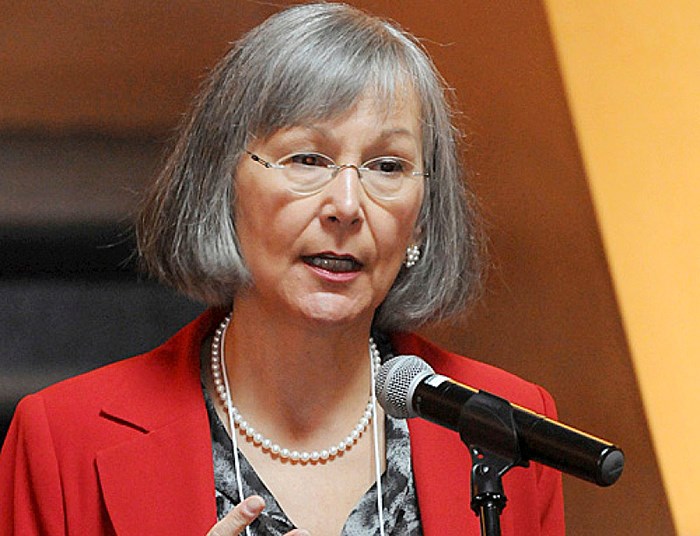The federal Inquiry into Missing and Murdered Indigenous Women and Girls announced this week will have a Port Coquitlam resident and provincial court judge at the helm.
Chief Commissioner Marion Buller, the first female First Nations judge in B.C., will be joined by four other commissioners in the two-year inquiry to examine the systemic causes behind the violence that Indigenous women and girls experience.
"Judge Buller is a person of great moral character whose work I respect and admire," said Carolyn Bennett, Minister of Indigenous and Northern Affairs, as she introduced the commission members Wednesday.
Bennett said Buller's experience as a First Nations judge in the provincial criminal court system adds a "unique and valuable perspective" to the inquiry.
"The commissioners and I accept our serious responsibilities and are committed to doing the difficult work ahead of us," Buller said Wednesday. "The spirits of the missing and murdered indigenous women and girls will be close in our hearts and in our minds as we do our work. The families' and the survivors' losses, pain, strength and courage will inspire our work."
The commission will be able to summon witnesses to give evidence and require relevant documents to be produced, and while it can review federal and provincial laws, it will not find criminal liability. It will be up to the commission to decide what factors to examine — be they historical, social, economic, institutional or cultural — and report on.
The federal government has earmarked nearly $54 million for the inquiry, which is set to begin on Sept. 1 and run through to the end of December 2018. It's expected the inquiry will build on existing knowledge, including B.C.'s Missing Women Commission of Inquiry led by former justice Wally Oppal, and make recommendations on "concrete actions to remove systemic causes of violence and increase the safety of indigenous women and girls."
Part of the funding will go to the provinces and territories to establish new family information liaison units within their existing victim services departments, as well as for victims' services projects across the country to directly help the families of indigenous missing women and girls.
Ernie Crey, whose sister Dawn Crey went missing in 2000 and whose remains were found on Robert Pickton's farm, said he was pleased with the announcement.
"It means a lot to me and it means a lot to many other people, most especially the families that… lost a family member on the Pickton property in Port Coquitlam," Crey said.
The fact that the national inquiry comes after extensive consultation with First Nations families grieving the loss of a loved one, as well as aboriginal organizations, women's groups and poverty advocacy groups, is a much-needed change from the provincial inquiry of about five years ago, Crey added, which was crafted behind closed doors with no consultation.
"I made the best of it I could," Crey said of the Oppal inquiry. "That approach, like a lime that left a sour taste in my mouth, is the furthest thing from the peach we now have in front of us."
[email protected]
@spayneTC



